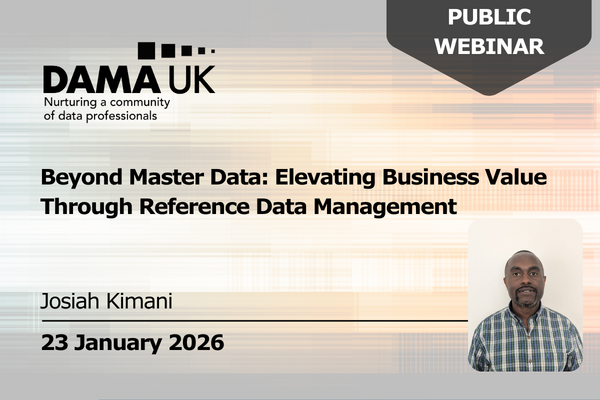In large organizations, the integrity of property/address data and asset/infrastructure data is foundational to operational efficiency, regulatory compliance, and customer service excellence. This presentation explores:
1. The often-overlooked role of reference data in Master Data Management (MDM),
2. Highlighting how poor governance of location and asset-related reference data can lead to fragmentation, reporting errors, and integration challenges.
3. Managing reference data beyond distinct or unique values ensuring that full lists of permissible values are captured, managed and maintained throughout the enterprise through the right processes, workflows and by the right individuals (stewards/owners).
4. Giving Master Data the added value of, not just being a list of key business data for operations & service provision to the customer, but being available to consume for context and perspective in reporting, insights and integration.”
Takeaways:
- Understand the strategic importance of reference data in MDM, especially Customer and Asset Domains.
- Understand how to design and govern reference data to support enterprise-wide consistency.
Josiah Kimani is a seasoned Data Expert and certified Profisee Master Data Management (MDM) professional with a career spanning over two decades. His journey in information systems began in 1999, underpinned by a strong foundation in Management of Information Systems in Kenya. After serving in the British armed forces for seven years, Josiah transitioned into the data domain in 2012, where he has since specialized in Data Governance, Reference Data, and Master Data Management.
He brings a wealth of experience across industries including telecommunications, healthcare, finance, insurance, oil & gas, utilities, government, retail, gaming, and revenue—working in permanent roles, contract positions, and as a professional services consultant. Josiah is recognized for his thought leadership in data strategy and governance, and is currently leading enterprise MDM architecture at Thames Water, driving innovation and consistency in data practices across the organization.
.png)

